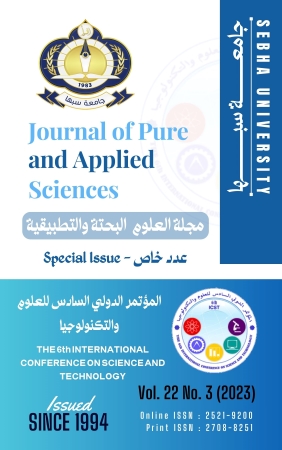Digital learning platforms as a tool for developing technological skills and improving the quality of Libyan higher education institutions
Abstract
The studies conducted by the scientific research team of this paper during the years of teaching experience to analyze the quantitative and qualitative use of learning technologies in higher education in Libya, in general, showed that these technologies are not used systematically and effectively. E-learning platforms tend to be turned into repositories of content rather than complete tools that enable and enhance learning and identify many gaps at the administrative, pedagogical and technical levels. Following best practices in this field, the overall development of these three levels is critical to achieving positive results. Therefore, after these studies, a set of guidelines and recommendations were developed to raise the level of technological accreditation in higher education. In this way there can be a structured digital approach, to encompass the entire institutional campus and lead to the use of an effective learning platform by teachers and students. Traditional lectures are mixed with full or partial online courses in most institutions. The use of an e-learning framework that enables students and lecturers to share knowledge improves the methodology and processes of student learning services. According to our experience at Elmergib University, the e-learning environment favors web-based teaching. Most Libyan universities and colleges should use the latest e-learning strategy to keep pace with and monitor the pace of technological innovation in open higher education. In today's age of technology, which makes participating in any online learning a straightforward way to learn about any kind of online teaching and learning scenarios.
Full text article
Authors
Copyright (c) 2023 Journal of Pure & Applied Sciences

This work is licensed under a Creative Commons Attribution 4.0 International License.
In a brief statement, the rights relate to the publication and distribution of research published in the journal of the University of Sebha where authors who have published their articles in the journal of the university of Sebha should how they can use or distribute their articles. They reserve all their rights to the published works, such as (but not limited to) the following rights:
- Copyright and other property rights related to the article, such as patent rights.
- Research published in the journal of the University of Sebha and used in its future works, including lectures and books, the right to reproduce articles for their own purposes, and the right to self-archive their articles.
- The right to enter a separate article, or for a non-exclusive distribution of their article with an acknowledgment of its initial publication in the journal of Sebha University.
Privacy Statement The names and e-mail addresses entered on the Sabha University Journal site will be used for the aforementioned purposes only and for which they were used.

